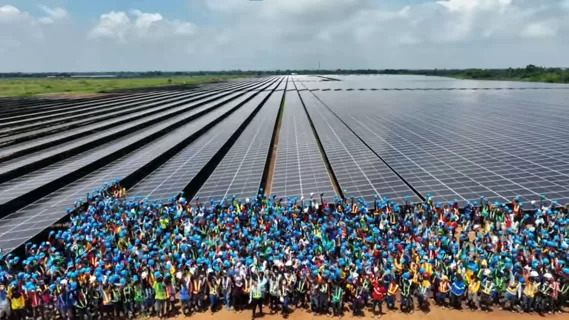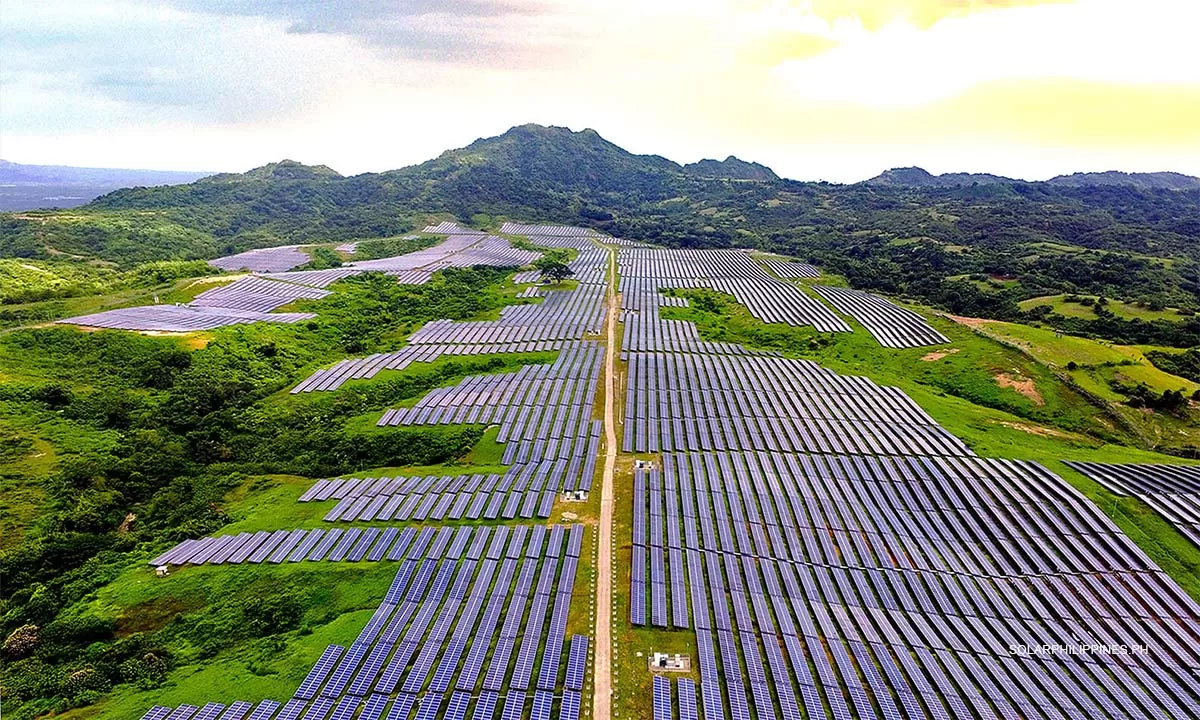The world’s largest solar farm and storage facility is taking shape in NEcija in the Philippines as construction is set to commence. President Ferdinand Marcos Jr. led the groundbreaking of the solar project on Thursday, a monumental achievement. The Meralco Terra (MTerra) Solar Project is expected to be the largest integrated solar and battery facility globally. In his speech in Nueva Ecija, the president noted the significance of the landmark project in the Philippines. He also said it would put the country on the map as a leader in renewable energy.
Furthermore, he added that with an investment of over $3.4 billion, the project demonstrated the confidence of the nation’s stakeholders. He also noted that it showed the Philippines’s “commitment to securing a stable, steady, reliable, and sustainable power supply.” The government has shown accolades for the project, noting its importance in ensuring sustainable energy. Once completed, the MTerra Solar project will power over 2 million households.
Project Summary:
Location: Philippines
Capacity: 3.5 GW
Significance: World’s Largest Solar Farm
Project duration: 3 years
Cost of Project: US$3.5 Billion
The State of Affairs Regarding the Multi-billion-dollar Solar Project
Terra Solar Philippines, Inc. (TSPI) has brought on board Power China to help implement the world’s largest solar farm. The Chinese-based company is mandated with the construction of a portion of the project. Moreover, they signed an engineering, procurement, and construction (EPC) contract with TSPI. The scope of the contract covers their construction of the east-side development of the MTerra Solar Project. TSPI President and Executive Director Dennis B. Jordan noted the endeavor as a monumental achievement.
“MTerra Solar serves as our bold step towards ensuring a sustainable energy future for the Philippines. With Power China as our partner, we are well on our way to achieving our vision of a cleaner energy future for the Philippines,” he noted. Noted to be the world’s largest solar project, it will cover a span of five towns. These include Gapan, General Tinio and Penaranda. It also covers the town of San Leonardo. All these four towns are in Nueva Ecija. It also includes San Miguel which is in Bulacan.
Also read:
Wind Farm in Tanay, Rizal to Boost Energy Reserves in the Region
Power China’s Role
Under the signed agreement on the world’s largest solar farm, Power China has been assigned a fundamental role. Power China is expected to handle the development of the east side, which spans approximately 1,505 hectares. Moreover, the allocated section accounts for 1,050 MWp of the project’s total capacity. The agreement also covers various aspects of the project, such as warranty, defect resolution, and the implementation of operational and maintenance protocols. These measures aim to ensure the long-term reliability and success of the project. “We sign this EPC agreement with Power China recognizing their expertise, exceptional track record, and unwavering commitment to excellence. We know they will help us realize our bold ambition,” MGen President and Chief Executive Officer Emmanuel V. Rubio said.
The Significance of the World’s Largest Solar Farm
Apart from ensuring a sustainable power supply, the world’s largest solar farm is expected to have numerous benefits. One of these includes the reduction of carbon emissions in Nueva Ecija. It will also meet the growing demand of electricity in the Philippines, as its economy develops. The president noted that, “once fully operational by 2027, this facility will deliver 3.5GW peak of solar power to the Luzon grid. Moreover, 4.5GW-hour will be battery energy storage.” His remarks were appreciated by many as he further noted that the solar farm would reduce carbon emissions by more than 4.3 million metric tons annually.

In perspective, he equated the farm’s impact to removing 3 million gasoline-powered cars from the roads. This is a decisive action that helps the world address global warming and climate change. Apart from benefitting locals, the project is expected to create over 10,000 job opportunities. It will also boost local economies and open doors for growth and development in the country. Over the next decade, the plant is expected to generate over $390 million in financial benefits. Furthermore, the funds generated may be channeled in other areas of the economy, creating progress in the Philippines.
Also read:
BT Industrial Group’s new 1MW solar plant highlights Innovative solar financing
The Scope of Implementation on the Multi-Billion MTerra Solar Project
The implementation of the world’s largest solar farm aims to span 3,500 hectares over five towns. It will cover towns in Nueva Ecija and Bulacan. It will be connected to the existing 500-kiloVolt (500kV) Nagsaag-San Jose Transmission Line. Later, it will be linked to the upcoming 500-kV Nagsaag-Marilao Transmission Line. Moreover, it is expected to cost about $3.5 billion, the facility will have a 3.5GW peak photovoltaic capacity. Furthermore, it will be complemented by a 4.5GW-hours battery energy storage system (BESS). The scope also entails the construction of the MTerra solar project in phases, with the first phase covering an initial capacity of 2,500MW. “We are working towards a steady and reliable power supply that will meet the demands of today and continuously fuel our ambitions for tomorrow,” President Marco noted. “Projects like Terra Solar bring us closer to that vision,” he added.

Also read:
The World’s Largest Offshore Solar Farm in China: Covers Over 1,200ha of Ocean Surface
The World’s Largest Hydropower Dam in DR Congo: The Grand Inga Dam

